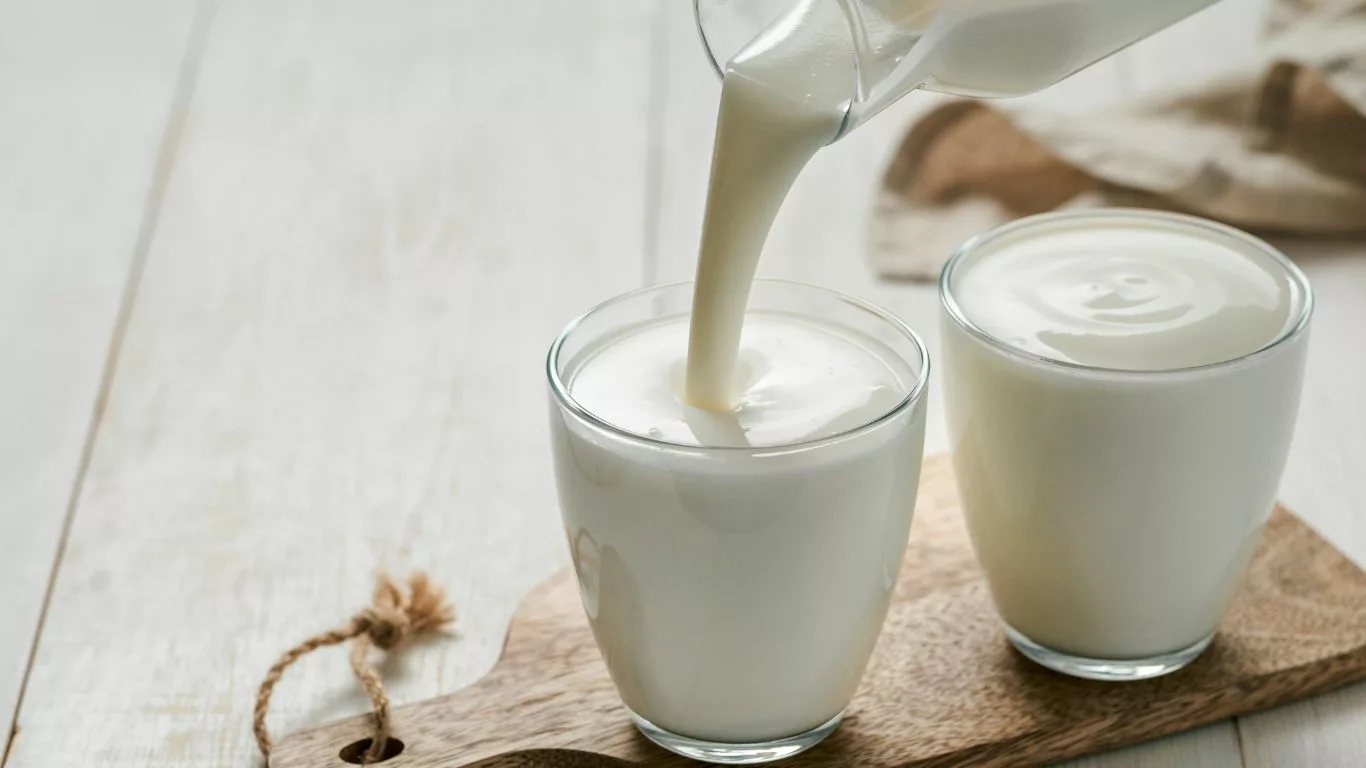Safe Dairy for Acid Reflux: What Works and What to Avoid
Discover the best dairy options for managing acid reflux while enjoying your meals. Tips, examples, and advice inside!
Managing acid reflux often means rethinking your relationship with certain foods, and dairy can be a tricky one. For some people, dairy is a trigger; for others, it’s a comforting source of nutrition. So, how do you figure out what works for you? Let’s dive in and break it all down in a casual, relatable way.

Choosing the Right Dairy for Acid Reflux
If you’ve ever had a late-night glass of milk only to regret it later, you’re not alone. Dairy can either soothe or irritate acid reflux symptoms depending on what type you choose and how your body reacts. Let’s start by looking at the options:
Low-Fat and Non-Dairy Alternatives
Opting for low-fat or non-dairy options like almond milk or oat milk can be a game-changer. These are less likely to aggravate reflux symptoms and can still provide that creamy goodness you love.
Greek Yogurt
Greek yogurt, with its high protein content and probiotics, is often easier on the stomach. Stick to plain or lightly sweetened versions to avoid triggering reflux.

Dairy to Approach with Caution
Some dairy products can be problematic for people with acid reflux. High-fat options and those loaded with sugar might not sit well.
Whole Milk
Whole milk and high-fat dairy products can be tough on the stomach. They take longer to digest, which can increase the risk of reflux.
Cheese
Certain cheeses, especially the aged or processed ones, are common reflux triggers. Stick to milder options like mozzarella or cottage cheese.
Ice Cream
Ice cream is a double whammy—it’s high in fat and sugar. If you’re craving something sweet, a small serving of low-fat frozen yogurt might be a better bet.

Tips for Incorporating Dairy
Want to keep enjoying dairy without the reflux drama? Here are a few practical tips:
Smaller Portions
Sometimes, it’s not what you eat but how much you eat. Smaller servings of dairy can help you enjoy it without triggering reflux.
Pair Dairy with Non-Acidic Foods
Combine dairy with foods that are less likely to cause reflux, like bananas or oatmeal, to balance out its effects.
Experiment with Non-Dairy Substitutes
Try out plant-based alternatives like almond, coconut, or oat milk. These can often mimic the texture and taste of traditional dairy without the reflux issues.

Conclusion
Finding safe dairy options for acid reflux doesn’t have to be a hassle. By sticking to low-fat options, experimenting with non-dairy alternatives, and watching your portion sizes, you can still enjoy the creamy, delicious foods you love. Just remember—everyone’s body is different, so pay attention to what works best for you.
Appendices
References
- American Gastroenterological Association (2024). Acid Reflux and Your Diet: Key Recommendations. Read Article
- Smith, L. (2023). Understanding GERD Triggers. Journal of Digestive Health, 45(3), 145-150. Read Article
- National Institute on Digestive Diseases (2024). Managing Acid Reflux Through Diet. Read Article
FAQs
- Can dairy cause acid reflux? Yes, certain dairy products, especially high-fat ones, can trigger acid reflux in some people.
- Is Greek yogurt good for acid reflux? Greek yogurt is often a good choice due to its probiotics and high protein content. Opt for plain or lightly sweetened varieties.
- What’s the best non-dairy milk for acid reflux? Almond milk, oat milk, and coconut milk are popular choices for those with acid reflux.
- Is ice cream safe for acid reflux? Ice cream is generally not recommended due to its high fat and sugar content.
- Can I eat cheese with acid reflux? Some cheeses, like mozzarella or cottage cheese, may be safer options, but aged or processed cheeses should be limited.
- Does low-fat milk help with acid reflux? Low-fat or skim milk is less likely to trigger reflux compared to whole milk.
- Are non-dairy yogurts better for acid reflux? Non-dairy yogurts made from almond, coconut, or oat milk can be gentler on the stomach.
- Can dairy worsen GERD symptoms? For some people, high-fat or sugary dairy products can aggravate GERD symptoms.
- What’s the safest way to include dairy in my diet? Stick to low-fat or non-dairy alternatives and consume in moderation.
- Is butter safe for acid reflux? Butter, being high in fat, can be a reflux trigger. Use sparingly or consider alternatives like olive oil.
Disclaimer: The information provided is for educational purposes only and is not a substitute for professional medical advice. Consult your healthcare provider for personalized recommendations.

Dr. Gwenna Aazee is a board-certified Internal Medicine Physician with a special focus on hypertension management, chronic disease prevention, and patient education. With years of experience in both clinical practice and medical writing, she’s passionate about turning evidence-based medicine into accessible, actionable advice. Through her work at Healthusias.com, Dr. Aazee empowers readers to take charge of their health with confidence and clarity. Off the clock, she enjoys deep dives into nutrition research, long walks with her rescue pup, and simplifying medical jargon one article at a time.







